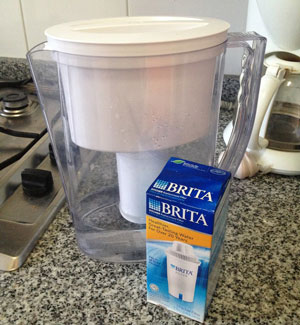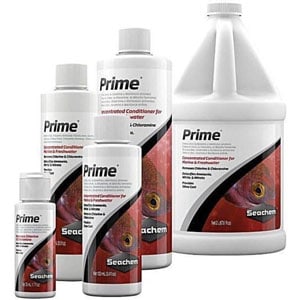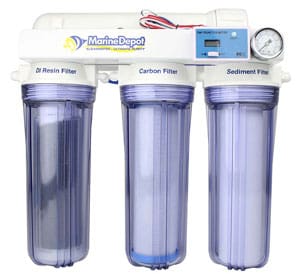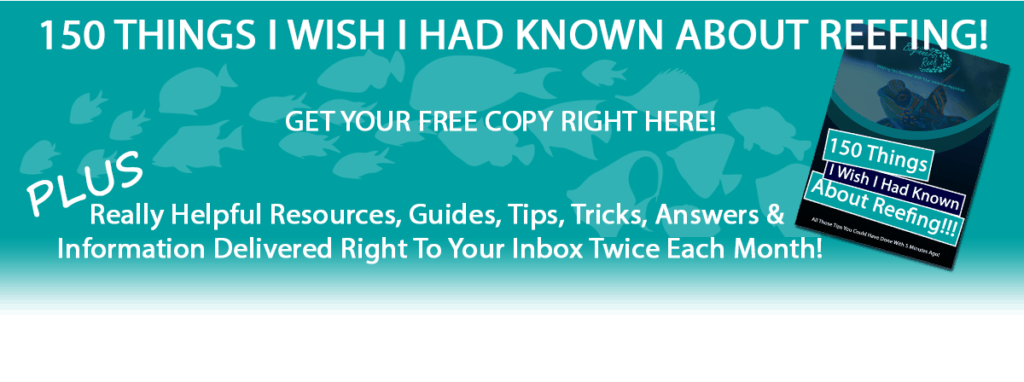This is a question I see asked many, many times all over the forums and I wanted to help inform those of you about using tap/faucet water in both freshwater and saltwater aquariums.
Faucet water differs greatly depending on your location. Are you on a well? Do you live in the mountains? Do you live in a huge metropolis?
These all play a part in how good and consistent your water quality is from the tap or faucet. The main thing you have to remember is that just because it is water, doesn’t mean its water suitable for your aquarium.
Not all city water treatment plants are the same, but they have one job, to make water clean for human consumption. They do this by using various methods and many of those methods use compounds that contain heavy metals, phosphates, nitrates, ammonia, silicate, fluoride, chlorine, and chloramines, just to name a few. All of these are toxic to aquatic life in the right concentrations.
Tap Water contains toxins like chlorine & heavy metals that can harm fish and coral. In small doses & emergencies, untreated tap water can be used but should be treated with a water conditioner like Seachem Prime. RO/DI filtered water is the safest option for long term aquarium health.
The most hobby recommended option is a Reverse Osmosis/De-Ionized (RO/DI) Water Filter.
If you wish to get more information about just how important and how easy these units are please see my article here:
RO/DI Water Filters For Saltwater Aquariums
You may have read that some aquarists have used faucet water for years with no problems, and yet someone used it once in an emergency, and they now have a serious algae bloom!
Every location is different and your local source water will dictate the steps you need to take to ensure you have the highest quality water.
Is Tap or Faucet Water Bad for Aquariums?
The chemical elements used in city water filtration processes are bad for your aquatic livestock. You have no control over what is in your tap water, when elements get added to that tap water and in what concentrations.
Another problem you can face is when the city does maintenance on the water lines and you could end up with sediment, other toxic elements or an increased level of a heavy metal.
Some of the most common elements found in city tap water are:
- Nitrates – Fuel Algae Blooms
- Phosphates – Fuel Algae Blooms
- Silicates – Fuel Diatom Blooms
- Ammonia – Toxic to Aquatic Life
- Chloramine – Reduces Oxygen-Carrying Capacity In Fishes Blood
The only way to ensure the water that is going into your aquarium is not only clean, but the highest quality is to use a filter. Read on to find out ways to get hold of good quality water, depending on your budget.
“It is not uncommon for people to drink tap water laced with 20 or 30 chemical contaminants.
Taryn Luntz – Scientific American
Can You Use Purified Water For A Fish Tank?
When most people think about purified water they think Brita. These home filters are very popular to help clean and polish water for drinking.
The Brita filters use charcoal to help remove odors, sediment, and some heavy metals, but not all. They are better than nothing, but the main problem with using this type of filter is that you will go through a lot of them!
Brita recommends their filters be changed every 40 gallons. If you are in a particularly polluted or hard water area this could be even sooner.

With each filter costing around $5ea, you are soon going to start spending lots of money for filtering your water, and you still don’t get water of the highest quality for a reef aquarium!
Can You Use Distilled Water For A Fish Tank?
The distilling process can provide some seriously clean water, sometimes too clean! The boiling allows for hopefully only pure hydrogen and oxygen to be captured.
This process relies on boiling the water to 100°C, collecting the steam then condensing it back into clean water, but what about the elements and pollutants that have a boiling point lower than 100°C? These will still be found in the distilled water because they boiled off before the water.
Your distilled water will still need to be filtered to remove these pollutants.
The other problem is that you do not know what materials are used in the production equipment. Many water distilleries use copper pipes and kettles, but these can lace your water with copper. Copper is highly toxic to saltwater invertebrates and should be tested before adding to your aquarium.
Not a good option for aquarium water, especially saltwater aquariums!
Can You Use Bottled Water For An Aquarium?
Bottled water is a very popular option for a lot of aquarists. It is easy to access, can be stored with no problems and is usually filtered using the right type of filtration that will ensure your aquarium remains healthy.
Most towns will have a ‘Water Store’ that supplies local businesses with water for their drink fountains. These stores do a very good job of keeping their water clean and free of dissolved solids.
Why not pay them a visit and ask to see their water filtration unit and their water testing results. They are usually more than happy to show you and advise you on your aquarium needs.
“After 35 years running municipal water systems I can tell you lots of stories and have lots of bad photos to share.
AZDesertRat (Nano-Reef.com) – Water Wastewater Operations and Maintenance Consultant
The point is, You have no control over tap water quality while you have 100% control with a $120 RO/DI unit”.
The water stores will be using a high output RO/DI (Reverse Osmosis/De-Ionised) filter system just like most aquarists will install in their home for their aquarium.
The other option is the refill stations at many of the grocery stores. Just be aware that these water stations are not serviced very regularly and the filters could be well past their useful life!
A $15 TDS pen similar to THIS ONE from Amazon.com is a Great investment to check the water at the store before buying it. Any reading but zero is when you walk away!
What Is An Aquarium Water Conditioner?
Aquarium water conditioners are a chemical treatment that you add to tap water. The conditioners help to detoxify Ammonia, Nitrates, and Nitrites while removing Chlorine and sometimes Chloramine.
They work by binding these elements into a safe state until they can be removed by your filtration. The most popular product on the market is Prime by Seachem. This is a really good product and it works very well for both freshwater and saltwater aquariums.
The main problem with water conditioners is that they do nothing to the heavy metals and dissolved solids in your water. You may not see any problem while using water conditioners, but over time, if you only have water treated with conditioner, your heavy metals, and dissolved solids will begin to accumulate.
Eventually, your water reaches a point where it creates a Tank Crash!
To learn more about a tank crash you can read my article HERE…
Prime is an OK option for short term or emergency use if you need to make a lot of water fast and you don’t have a stockpile.
What Is The Best Aquarium Water Filter?
By far the best investment you could ever make to your aquarium is an RO/DI water filtration unit. For a fairly small amount of money, you will have total control over the quality of water that goes into your tank. Each system is completely configurable to help you remove all the nasty’s that come in from the city water.
Some locations will only require a simple 3 stage filter, while areas containing lots of chemical elements and heavy metals may need up to 6 or 7 stages. By firstly finding out what is in your local water you can pick the right system for you.
“Eventually I got smart and started using a RODI system and ever since I started using the RO/DI I have been algae free.”
Daveg99 – Nano-Reef.com
To find lots of information and a great selection of RO/DI water filters for your aquarium go HERE to Amazon.com.
I can tell you that it will be the best investment you make in the long-term health of your aquarium!
Further Reading
To help you on your reefing journey you may find the following articles useful:
I have a very detailed article on RO/DI water filters and how to select the right one for you HERE…



